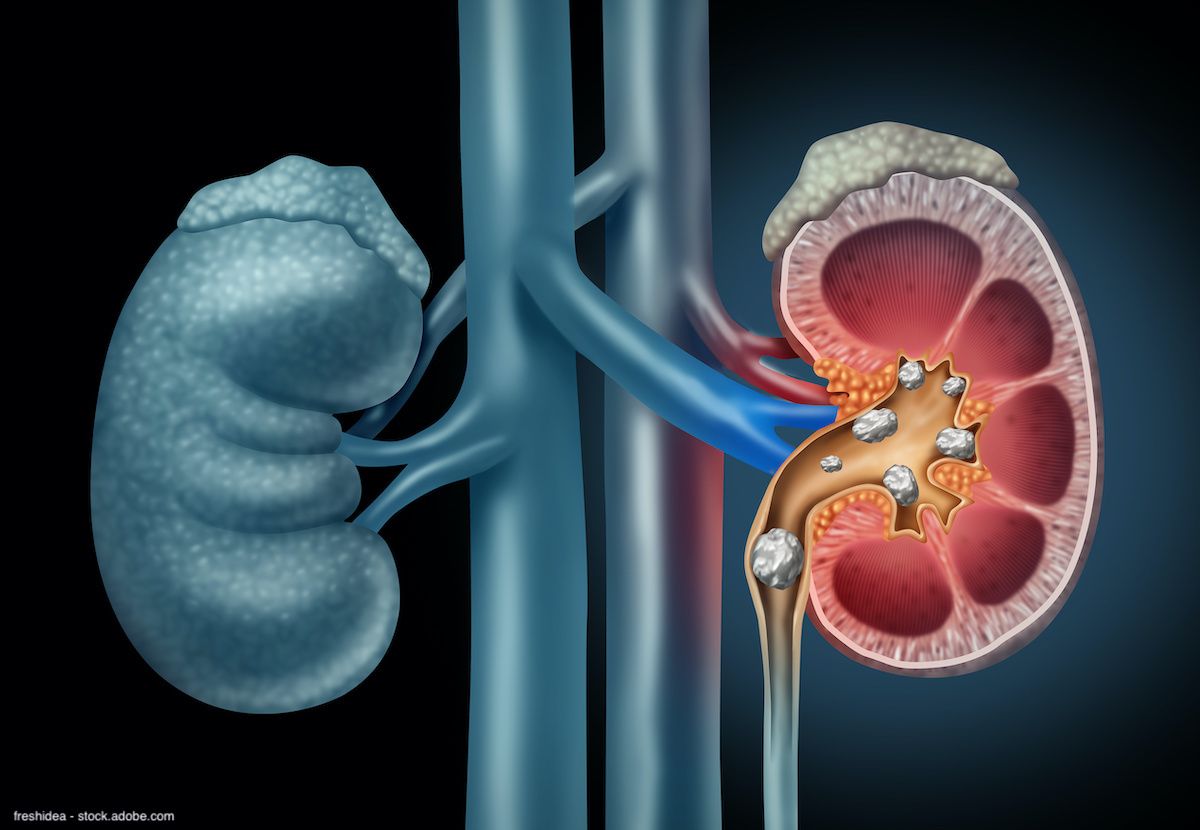MUSC Kidney Stone Center ensures patients with kidney stones get treatment within 24 hours
We have a dedicated full-time team. We have three fellowship-trained urologic specialists in stone disease. We will offer every treatment for stone disease, including endoscopic surgery, percutaneous surgery, robotic surgery and shockwave therapy,” said urologist Stephen Savage, MD, who leads the center.
Gwen Rogers knows all about kidney stones – not only because she’s a urology nurse but also, unfortunately, from plenty of personal experience. She’s had enough kidney stones to sense when one is about to make her life very uncomfortable. “A lot of times it’s just kind of a funny feeling that comes over you. At first, you feel a little nauseated; you feel a little dizzy, kind of like something’s not right.”
MUSC Health has a designated Kidney Stone Center with a hotline that offers treatment within 24 hours.

Then, depending on the size and location of the stone, the real discomfort may ramp up. While some kidney stones can pass through the body safely, sometimes the hard little rocks of salt and minerals get trapped in the urinary tract.
Rogers described what that feels like. “The pain starts in the back or flank area and progressively gets worse. Then the pain wraps around over the hip, whether it be the left hip or the right, and wraps right into the groin area. It can be pretty excruciating and happens really quickly at that point.”
The nurse, who recently moved to the Charleston area from North Carolina, said in the past, getting treatment wasn’t exactly a speedy process. “I would call the office; I’d wait for somebody to call me back, and that could take one or two days. Of course, when the pain kicks in, you end up going to the emergency room, and the wait there could take hours for them to see you and finally begin treatment.”
She’s grateful that MUSC Health now has a designated Kidney Stone Center with a hotline that offers treatment within 24 hours. When Rogers called that hotline on a recent Thursday evening, she was thrilled to be scheduled for surgery the next day.
Urologist Stephen Savage, M.D., leads the center. He knows how important it is to help patients such as Rogers, who are suffering, ASAP, using care tailored to their situations. “We have a dedicated full-time team. We have three fellowship-trained urologic specialists in stone disease. We will offer every treatment for stone disease, including endoscopic surgery, percutaneous surgery, robotic surgery and shockwave therapy,” Savage said.
Endoscopic surgery involves a urologist guiding a scope through the urinary tract to the stone to break it up. Percutaneous surgery means a tiny tube is put in the skin of your back to allow the doctor to find and get rid of the kidney stone. In robotic surgery, the doctor uses robotic instruments to go through small holes in the abdomen to remove the stone. And shockwave therapy uses shock waves to break kidney stones into small pieces so they’re easier for the body to get rid of.
Kidney stones are more common than you may realize. About one in 10 people get kidney stones, according to the National Kidney Foundation. Savage said his team takes care of patients throughout MUSC Health’s hospital system.“People in Lancaster, Florence, Kershaw, Marion – we work with all of them.”
Savage said a variety of dietary, environmental, hereditary and metabolic factors can cause stones. “There’s a lot of kind of folklore out there about why kidney stones form and a lot of misinformation. What we offer everybody is, ultimately, an analysis of what’s coming out in their urine to figure out why they’re making stones so we can make personalized, targeted recommendations for them so that they don’t have to go through this anymore.”
Rogers is trying a low oxalate diet, avoiding foods such as spinach, almonds and rhubarb that contain high amounts of the compound. She’s also taking medication to reabsorb calcium that is spilling into her urine and a supplement to increase her citrate to inhibit stone formation.
For her, there’s no magic trick to prevent kidney stones. She’s genetically predisposed to getting them. But proper diet and medication can drastically reduce her risk. And now, when she has one, she can get care almost immediately.
“I definitely want to say that this has been a great advancement for patient care - making a CT scan available, making a surgical suite available, getting a doctor on board right away. When you’re in that much pain, it weighs heavy on you and you want relief fast. So time is of the essence at that point. The stone center team definitely has been a godsend, to be honest."
Alkaline water unlikely to prevent kidney stones, study finds
January 11th 2024"While alkaline water products have a higher pH than regular water, they have a negligible alkali content–which suggests that they can't raise urine pH enough to affect the development of kidney and other urinary stones," says Roshan M. Patel, MD.
Microbiome alterations linked to kidney stone formation
December 21st 2023"If the diversity and robust functional potential of the healthy human microbiome is repeatedly assaulted by the average Westernized lifestyle via antibiotic exposure, diet, and other environmental factors, kidney stone prevalence will continue to increase," the authors write.
